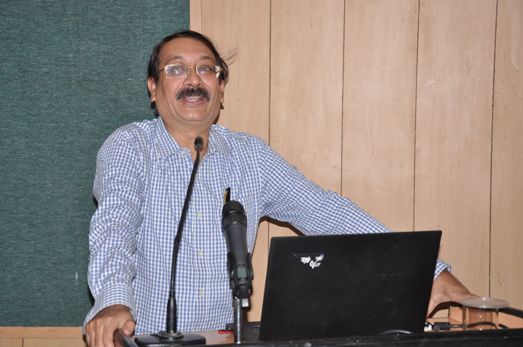10 Jul 2018|Noida | F1 MDP Room
Faculty Development Programme (FDP) on “Intellectual Property Rights and its Applications for India”

Amity Institute of Anthropology (AIA) in association with Amity Academic Staff College (AASC) organized a one day Faculty Development Programme (FDP) on“Intellectual Property Rights and its Applications for India” at University Campus, Sector 125 Noida
The FDP aimed to familiarize the researchers and inventors about the guidelines for patenting inventions and furthermore, providing insight into practical applications of IPR such as patent drafting, patentability search, freedom to operate search, validity/invalidity search and evidence of use analysis
Welcoming the guests, Prof. (Dr.) Roumi Deb, Addl. Dir, AIA said that in recent years, Intellectual Property Rights (IPRs) has emerged as an important instrument for driving innovation. Thus, it becomes highly relevant to understand the various forms and scope of IPRs and its implications. “IPRs is important for a country, like India, which has emerged as one of the most influential economies by forming strong policies which promotes innovation driven inclusive growth.” avers Dr. Deb. She further added that the broad objective of the FDP will help faculty members and researchers to gain knowledge of the justifications and rationale for protecting Intellectual Property.
Sharing his views on ‘IPR & It’s Implication for Research, Innovation, Economy and Development’, Prof. Sujit Bhattacharya, Scientist, NISTADS (NationalInstitute of Science Technology and Development Studies) said “ideas and innovations have become the most important resource. IPRs, in particular Patents, has emerged as the key determinant of innovation.” He mentioned that new and emerging science & technologies have led to the fourth industrial revolution, thereby, the need of the hour is to understand the importance of creating, owning and protecting the intellectual assets. Prof. Bhattacharya stressed that it is not only the technology or functionality that can be patented, but creative ideas like design of a product could also be considered under IPR. He stressed on the fact that patentee should know that only those inventions are considered for patenting which have a useful, concrete and tangible outcome and for the benefit of common man.
During the day, Dr. P. Venkatesan, Advocate, Supreme Court of India presented a lecture on ‘The Provisions of Patenting in India: A Brief Overview’ and ‘TRIPs Agreement and its Implications: A Brief Overview’. He briefed about various acts enacted by Parliament to protect Intellectual Property in India. He shared that the objective of issuing patent is to encourage scientific research, new technology and industrial growth. IPR stimulates new inventions which are transferred into public domain for betterment of society. Dr. Venkatesan apprised that there are spectrum of innovations that can be patented however ideas, law of nature and scientific principles are not patented. He informed about various criterias that should be taken into consideration for patentability including patentable subject matter, industrial application,novelty, specification and innovation step/non-obviousness.
Dr.B.K. Sahoo, Officer In charge & Head, UN-WIPD, Technology Innovation Support Center highlighted the role of IPR in Technology Commercialization and Transfer/Case Study in Indian University Innovation.
The Faculty Development Programme was attended by hundreds of researchers and faculty members of Amity University.